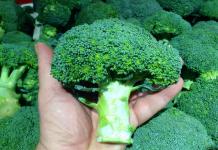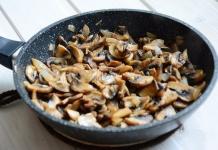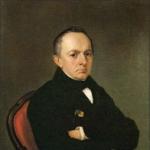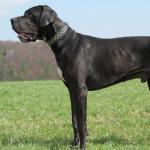 It's nice to see and listen to an interesting story teller. I have always admired people with words. I hope you share my opinion.
It's nice to see and listen to an interesting story teller. I have always admired people with words. I hope you share my opinion.
Now in the environment of our children there are very few sources of quality language. Just very little.
Which exit? This environment must be created. I have already talked about this in an article about theatrical activities of children. A good result for the mind and speech is given by word games. , for example, when we look for a word that is opposite in meaning to the given one, thinking is accelerated .
An antonym is a word that has the opposite meaning.
For preschoolers, the expression "words-enemies" is more understandable. But you can introduce the concept of "antonyms to the word." I usually tell the kid: “Now we will look for “enemy words”. They are also called “antonyms”. You will learn this word at school. So remember, it will still come in handy for you.”
Believe experience, a preschooler will definitely try to remember and show off in front of his comrades and parents. Sometimes this can also be explained to schoolchildren, if the search for antonyms is news to them. And it's not just first grade students.
Words-enemies for preschoolers
The game. Complete the sentence and name the "enemy words"
Instruction. "You and I will come up with sentences: I will come up with the beginning, and you - the end."
- the mosquito is small, but the elephant...;
- the fluff is light, and the stone ...;
- bitter mustard, and sugar ...;
- the bush is low, and the tree ...;
- the compote is cold, but the soup...;
- sour cream is thick, and milk ...;
- narrow stream, river...;
- it's dark at night, but during the day...;
- sugar is sweet, and lemon ...;
- they walk with their feet, but they throw ...;
- a kindergarten is close, and a school ...;
- the tape is narrow, and the belt ...;
- the stream is shallow, and the lake ...;
- the lark sings, and the crow ...;
- the plane flies high, and the helicopter ...;
- the tortoise crawls slowly, the hare gallops...;
- there is a lot of water in the pan, but in a glass ...;
- the buyer buys, and the seller ...;
- hot in summer, and in winter ...;
- breakfast in the morning, and at noon ...;
- salt is salted, and sugar ...;
- children answer, and the teacher ...;
- in the evening the children leave kindergarten, and in the morning ...;
- fruits grow on the tree, and in the garden ...;
- flowers appear on the trees in spring, and in autumn ...;
- get out of bed in the morning, and in the evening ...;
- the skyscraper is high, and the hut ...;
- birds fly, and snakes ...;
- at noon they dine, and in the evening ...;
- the viewer watches the movie, and reads the book ...;
- dirt on the street, but in the house ...;
- the trunk of the tree is thick, and the twig ....
- the pencil draws, and the eraser ...
The game. Say the opposite
Instruction. "I'll tell you a word, and you say the opposite" (give an example)
|
night -...; breakfast -…; evening -...; enemy -...; purity -...; cold -...; war -...; grass - …; Earth - …; traffic - …; talker - ...; health - ….; mind - ... |
to come in -...; be silent -...; gave -...; get up -...; undress -...; lift up -...; laugh - …; turn on-...; close -...; come - …; appear - ...; there is - …. |
big - ...; black - ...; short -...; bad - …; sick -...; old -...; young - …; wide -...; thick -...; narrow - …; difficult - …; dry-….; bitter - ... |
Words with the opposite meaning are absent in the dictionary even of high school students. Therefore, the search for antonyms on this moment valid until graduation.
Learning to search for antonyms for a word for both preschoolers and schoolchildren should start with a simple one. Schoolchildren may resent simplicity. Explain that you need to warm up. Complicate: answer directly "on the fly." As a rule, guys with limited vocabulary already have a loser complex. Having immediately offered complex (for example, abstract) words, you can get a complete refusal to study.
Semantic opposites in poetry
It's your turn for us
Play the reverse game.
I will say a word
High,
And you will answer:
Low.
I will say a word
Long away,
And you will answer:
… (close).
I will say a word
Ceiling,
And you will answer:
… (floor).
I will say a word
Lost.
And you say:
… (found).
I will tell you a word
Coward,
You will answer:
... (brave).
Now
Start
I will say, -
Well answer:
... (end) (D. Ciardi)
I do not like the word "heat",
I'm in the river, in the thick shade
And bottles of lemonade
What is my name?
(Cool)
The enemy of the word "laughter".
Not from joy, comfort,
I happen involuntarily
Both from happiness and from pain,
From resentment, failure.
Guessed? - It…<
(Cry)
I don't like the word "summer".
Dressed in a snow coat
Even though I love frost!
Because I am...?
(Winter)
I am against noise, knocking.
Without me, you will suffer at night.
I'm for relaxation
For sleep,
Yes, and at school I need
called? -
(Silence)
I'm not without a start
A close relative of the wharf,
Cause every crown,
My name is...?
(End) (A. O. Belobrykina)
Search for antonyms for schoolchildren
- Sources of words that are opposite in meaning are, of course, dictionaries. work we start by searching for the Dictionary of Antonyms of the Russian Language (author M. R. Lvov). There is also an excellent information and reference resource _http://bravica.ws/ru/antonims.htm. By loading this link into the search bar (without a dash at the beginning of the link), you will be taken directly to the desired page. Work with each page for more than one day. Each time take 10-20 pairs of words (depending on age and development of speech).
- Read for yourself carefully all the vocabulary pairs "a word - its opposite."
- Have your teen read it too.
- Let him name the word, and you - the opposite in meaning.
- You change roles.
- Start the next lesson with a repetition: you name the word, he - the word is reversed.
- Then the next 10-20 pairs of words (according to points 2-5).
- Word will help you choose the opposite word. Hover over the word and press the right mouse button. At the bottom of the drop-down menu there will be an item "Synonyms". From it, follow the arrow to the right and in the new menu down to the item "Antonyms".
- Some words of the Russian language do not have their semantic opposites. If your search for an antonym for a word has failed, you can do it in real time on the literacy.ru resource.
Children love to teach parents at any age, so occasionally "mistake" somewhere. Praise the teenager, but not "on the forehead", because this can be perceived as fawning, but as if in between times. Praise him to someone else, for example, in a telephone conversation with his grandmother, his father who came home from work, etc., but in such a way that the teenager can hear it.
By exercising a preschooler or schoolchild in the search for antonyms, you significantly expand his vocabulary and only by this speed up thinking. This is at least. Do not spare time for useful work. It might be difficult at first. But the road will be mastered by the walking one! The Non-Standard Children website wishes success to its readers.
(from Greek anti - against, ónyma - name) - these are words with the opposite meaning when used in pairs. Those words enter into antonymic relations, which reveal from opposite sides correlative concepts associated with one circle of objects, phenomena. Words form antonymic pairs based on their lexical meaning. One and the same word, if it is ambiguous, can have several antonyms.
occur within all parts of speech, however, the words of an antonymic pair must belong to the same part of speech.
Do not enter into antonymic relations:
- nouns with a specific meaning (house, book, school), proper names;
- numerals, most pronouns;
- words denoting gender (man and woman, son and daughter);
- words with different stylistic coloring;
- words with magnifying or diminutive accents (hand - hands, house - house).
By their structure, antonyms are not homogeneous. Among them there are:
- one-root antonyms: happiness - misfortune, open - close;
- heterogeneous antonyms: black - white, good - bad.
The phenomenon of antonymy is closely related to the polysemy of the word. Each of the meanings of the word can have its own antonyms. Yes, the word fresh in different meanings will have different antonymic pairs: fresh wind - sultry wind, fresh bread - stale bread, fresh shirt - dirty shirt.
Antonymic relations can also arise between different meanings of the same word. For example, to look through means “to get acquainted with something, to check, quickly examining, looking through, reading” and “to skip, not notice, miss”. The combination of opposite meanings in one word is called enantiosemy.
Depending on the distinctive features that words with the opposite meaning have, two types of antonyms can be distinguished general language(or simply linguistic) and contextual speech(author's or individual).
Common language antonyms are regularly reproduced in speech and fixed in the vocabulary (day - night, poor - rich).
Contextual speech antonyms- these are words that enter into antonymous relations only in a certain context: Sing better with a goldfinch than with a nightingale.
The use of antonyms makes speech more vivid and expressive. Antonyms are used in colloquial and artistic speech, in many proverbs and sayings, in the titles of many literary works.
 One of the stylistic figures is built on a sharp opposition of antonyms - antithesis(opposition) - a characteristic by comparing two opposite phenomena or signs: Long live the sun, let the darkness hide! (A.S. Pushkin). Writers often build titles of works using this technique: “War and Peace” (L.N. Tolstoy), “Fathers and Sons” (I.S. Turgenev), “Thick and Thin” (A.P. Chekhov), etc. .
One of the stylistic figures is built on a sharp opposition of antonyms - antithesis(opposition) - a characteristic by comparing two opposite phenomena or signs: Long live the sun, let the darkness hide! (A.S. Pushkin). Writers often build titles of works using this technique: “War and Peace” (L.N. Tolstoy), “Fathers and Sons” (I.S. Turgenev), “Thick and Thin” (A.P. Chekhov), etc. .
Another stylistic device, which is based on the comparison of antonymic meanings, is oxymoron or oxymoron(gr. oxymoron - lit. witty-stupid) - a figure of speech in which logically incompatible concepts are connected: a living corpse, dead souls, ringing silence.
Dictionaries of antonyms will help you choose an antonym for a word.Dictionaries of antonyms- linguistic reference dictionaries that describe antonyms. For example, in dictionary L.A. Vvedenskaya the interpretation of more than 1000 antonymic pairs is given (their synonymous correspondences are also taken into account), the contexts of use are given. BUT in the dictionary of N.P. Kolesnikova antonyms and paronyms are fixed. The book contains approximately 3,000 paronyms and more than 1,300 pairs of antonyms. There are no illustrations of the use of antonyms in the dictionary.
In addition to antonym dictionaries of a general type, there are also private dictionaries that fix polar relationships in some narrow areas of the vocabulary. This includes, for example, dictionaries of antonyms-phraseological units, dictionaries of antonyms-dialectisms, etc.
Let's take a look at the most common examples of antonyms: good evil; good bad; friend - enemy; day Night; heat - cold; peace - war, quarrel; true False; success - failure; benefit - harm; rich - poor; difficult - easy; generous - stingy; thick - thin; hard - soft; brave - cowardly; White black; fast - slow; high Low; bitter - sweet; hot Cold; wet - dry; full - hungry; new - old; big small; laugh - cry; speak - be silent; love - hate.
Do you have any questions? Can't find an antonym for a word?
To get the help of a tutor - register.
The first lesson is free!
site, with full or partial copying of the material, a link to the source is required.
Antonyms are words that are different in sound and have opposite meanings: lie - truth, evil - good, silence - speak. Examples of antonyms show that they refer to the same part of speech.
Antonymy in Russian is presented much narrower than synonymy. This is due to the fact that only words that are correlated in terms of quality (good - bad, native - alien, smart - stupid, dense - rare, high - low), temporal (day - night, early - late), quantitative (single - multiple, many - few), spatial (spacious - cramped, large - small, wide - narrow, high - low) features.
There are antonymic pairs denoting the names of states, actions. Examples of antonyms of this kind: rejoice - grieve, cry - laugh.

Types and examples of antonyms in Russian
According to the structure, antonyms are divided into heterogeneous (morning - evening) and single-root (enter - exit). The opposite of the meaning of single-root antonyms is caused by prefixes. However, it should be remembered that the addition to adverbs and prefixes without-, not- in most cases, it gives them the value of a weakened opposite (high - low), so the contrast of their values turns out to be "muffled" (low - this does not mean "low"). Based on this, not all prefix formations can be attributed to antonyms, but only those that are the extreme points of the lexical paradigm: strong - powerless, harmful - harmless, successful - unsuccessful.
Antonyms, as well as synonyms, are in close connection with polysemy: empty - serious (conversation); empty - full (cup); empty - expressive (look); empty - meaningful (story). Examples of antonyms show that different meanings of the word "empty" are included in different antonymic pairs. Single-valued words, as well as words with specific meanings (iambic, pencil, desk, notebook, etc.) cannot have antonyms.
Among antonyms, the phenomenon of enantiosemy also exists - this is the development of mutually exclusive, opposite meanings of some polysemantic words: carry (into the room, bring) - carry (out of the room, take away); abandoned (a phrase just said) - abandoned (abandoned, forgotten). The meaning in such cases is specified in the context. Enantiosemy is often the cause of ambiguity in certain expressions. Examples of antonyms of this kind: he listened to the report; the director looked through these lines.

Contextual antonyms are words that are opposed in a specific context: moonlight - sunlight; not a mother, but a daughter; one day - the whole life; wolves are sheep. The polarity of the meanings of such words in the language is not fixed, and their opposition is an individual decision of the author. The writer in such cases reveals the opposite qualities of various concepts and contrasts them in speech. However, these pairs of words are not antonyms.
Antonyms (gr. anti- against + onyma- name) - these are words that are different in sound, having directly opposite meanings: truth - lie, good - evil, speak - be silent. Antonyms, as a rule, refer to one part of speech and form pairs.
Modern lexicology considers synonymy and antonymy as extreme, limiting cases, on the one hand, of interchangeability, on the other hand, of opposition of words in content. At the same time, synonymous relations are characterized by semantic similarity, while antonymic relations are characterized by semantic difference.
Antonymy in the language is presented `narrower than synonymy: only words that are correlative on any basis - qualitative, quantitative, temporal, spatial and belonging to the same category of objective reality as mutually exclusive concepts enter into antonymic relations: beautiful - ugly, many - few, morning - evening, remove - bring closer. Words of other meanings usually do not have antonyms; compare: house, thinking, writing, twenty, Kyiv, Caucasus. Most antonyms characterize qualities ( good - bad, smart - stupid, native - alien, dense - rare and under.); there are quite a few that point to spatial and temporal relationships ( large - small, spacious - cramped, high - low, wide - narrow; early - late, day - night); fewer antonymic pairs with quantitative meaning ( many - few; single - numerous). There are opposite names of actions, states ( cry - laugh, rejoice - grieve), but these are few.
The development of antonymic relations in vocabulary reflects our perception of reality in all its contradictory complexity and interdependence. Therefore, contrasting words, as well as the concepts they denote, are not only opposed to each other, but are also closely related. Word kind, for example, evokes in our minds the word evil, distant reminiscent of close, accelerate- about slow down.
Antonyms "are at the extreme points of the lexical paradigm", but between them in the language there may be words that reflect the indicated feature to a different extent, i.e., its decrease or increase. For example: rich- prosperous - poor - poor - beggar; harmful- harmless - useless - useful . Such opposition implies a possible degree of strengthening of a sign, quality, action, or gradation (lat. gradient- gradual increase). Semantic gradation (gradation), thus, is characteristic only of those antonyms whose semantic structure contains an indication of the degree of quality: young - old, big - small, small - large and under. Other antonymic pairs are devoid of the sign of gradualness: up - down, day - night, life - death, man - woman.
Antonyms that have a sign of gradualness can be interchanged in speech to give the statement a polite form; yes, it's better to say thin, how skinny; elderly, how old. Words used to eliminate the harshness or rudeness of a phrase are called euphemisms (gr. eu- good + phemi- I say). On this basis, sometimes they talk about antonyms-euphemisms, which express the meaning of the opposite in a softened form.
In the lexical system of the language, antonyms-conversives can also be distinguished (lat. conversion- change). These are words expressing the relationship of opposites in the original (direct) and modified (reverse) statements: Alexander gave book to Dmitry.- Dmitry took Alexander's book Professor accepts credit for the trainee.- Trainee surrenders credit to the professor.
There is also intra-word antonymy in the language - the antonymy of the meanings of polysemantic words, or enantiosemy (gr. enantios- opposite + sema - sign). This phenomenon is observed in polysemantic words that develop mutually exclusive meanings. For example, the verb depart can mean "to return to normal, feel better", but it can also mean "to die, say goodbye to life." Enantiosemy becomes the reason for the ambiguity of such statements, for example: Editor viewed these lines; I listened to divertissement; Speaker misspoke and under.
By structure, antonyms are divided into heterogeneous (day - night) and single-root ( come - go, revolution - counter-revolution). The former constitute a group of proper lexical antonyms, the latter - lexico-grammatical. In single-root antonyms, the opposite of meaning is caused by various prefixes, which are also capable of entering into antonymic relations; compare: in lie down - you lay down, at put - from put, per cover - from cover. Therefore, the opposition of such words is due to word formation. However, it should be borne in mind that adding prefixes to quality adjectives, adverbs not without- most often gives them the meaning of only a weakened opposite ( young - not young), so that the contrast of their meaning in comparison with non-prefixed antonyms turns out to be "muffled" ( middle-aged It doesn't mean "old" yet. Therefore, not all prefix formations can be attributed to antonyms in the strict sense of this term, but only those that are extreme members of the antonymic paradigm: successful - unsuccessful, strong - powerless.
Antonyms, as already mentioned, usually form a pair correlation in the language. However, this does not mean that a particular word can have one antonym. Antonymic relations make it possible to express the opposition of concepts in an "open", polynomial series, cf .: concrete - abstract, abstract; cheerful - sad, sad, dull, boring.
In addition, each member of an antonymic pair or antonymic series can have its own synonyms that do not intersect in antonymy. Then a certain system is formed in which synonymous units are located vertically, and antonymic units are located horizontally. For example:
smart - stupid to be sad - to rejoice reasonable - stupid to be sad - to have fun wise - brainless to yearn - to exultSuch a correlation of synonymous and antonymic relations reflects the systemic connections of words in the vocabulary. The interrelation of ambiguity and antonymy of lexical units also points to the consistency.
Antonyms are words that have exactly opposite meanings. For example: long - short, thick - thin, hot - cold, etc.
Child education can be turned into an exciting game for children. And since poetry easier to remember, then it is better to give information to the child. In the text words antonyms for children highlighted in different colors.
Big small
The bear is kind and funny,
Because he big
.
But the bunny is cowardly,
because too small
.
Thin - thick
Like a rope, like a liana
Body thin boa.
But thick elephant
Visible to everyone from afar.
Wide narrow
Look at the hippo
He wide for some reason.
A green crocodile
Narrow compared to him.
High Low
There are two friends in the meadow,
There are hooves and horns
But the giraffe a bit tall
,
A goat smallish
.
Silly - smart
How are you, silly kolobok,
To the fox jumped on the toe?
Just a red fox
Highly clever was.
Sad - cheerful
Sad clown crying loudly
BUT happy clown jumps,
Wants to accomplish a feat -
Wants to make the roar laugh.
old - young
grumbled old grandfather:
"You'll live to be a hundred years old!"
The grandson replied: “Never!
Will young always!"
Black White
Dasha drew for a long time
Birds in orange gouache,
But Dima intervened in the matter:
"Crow - black, pigeon - white
!»
Brave - coward
Out in the field brave knight,
He can fight anyone
BUT cowardly hare
The girl is also scared.
Kind angry
Vasya sprinkles crumbs for the birds.
Zhora everyone is afraid of cats -
He chases them with a broom.
Vasya - kind, Zhora - evil
!
Light heavy
Mishutka sat on a swing -
Mice lungs took off.
For fun like Mishka
Something really heavy too much.
Soft - hard
Love the cat and Tanya's dad
sleep on soft on the sofa,
And on hard stool
There are no contenders at all.
Wet - dry
It was a cloudy day
Gleb took the umbrella, but Leo forgot.
It rained well.
Leo - all wet, Gleb - dry
!
Sweet - bitter
Curious toddler
Studied food taste,
But of all I remember only
Sweet cake and pepper bitter
.
Full - empty
Full suitcase proud,
What will go abroad
Well, old and empty
They will be sent to the closet to wait.
Long short
Long sundress for Masha,
To be more beautiful than everyone in the world,
BUT short- for Alenka,
Her little sister.
Hungry - full
"Oh," the dog sighs. hungry
, –
I can eat anyone!
well-fed to him in reply:
"Well, then I'm not here!"
Cold - hot
Loves even the king of the underwater
Drink a cocktail in the heat cold
,
And Emir Ali-Kuchay
Drinking in the heat hot tea.
Dirty - clean
Dirty car
The path of the car was blocked:
« clean here is the green light!
There is no other way!”
Funny poems about numbers and mathematical signs .
And if you are interested miracle alphabet then look for .




















